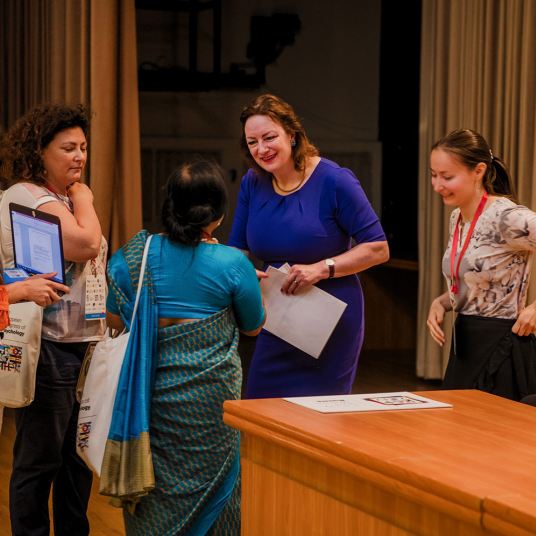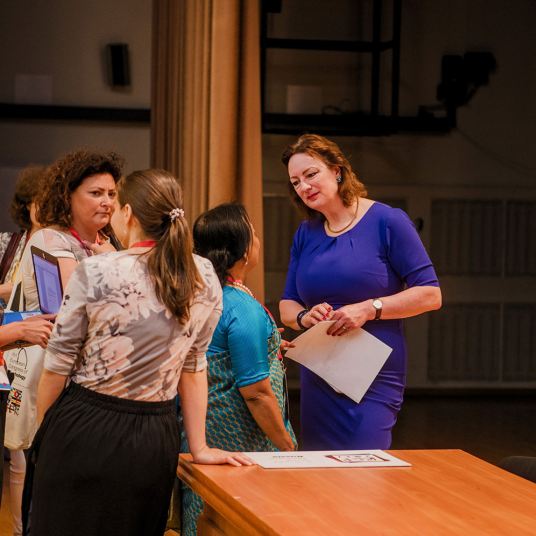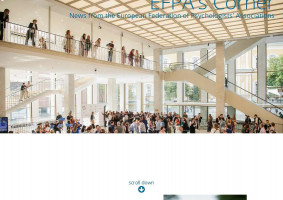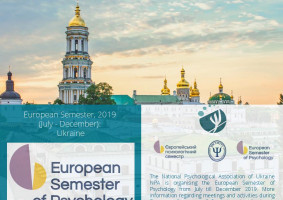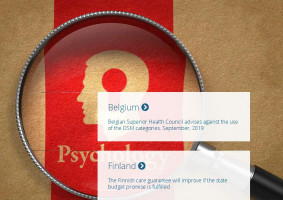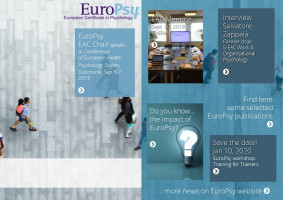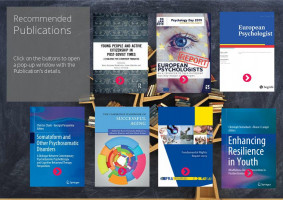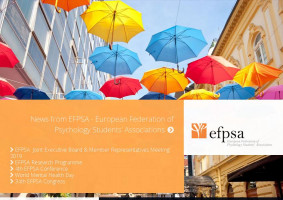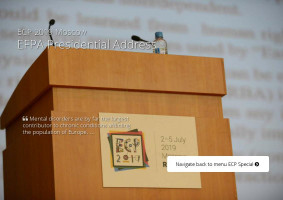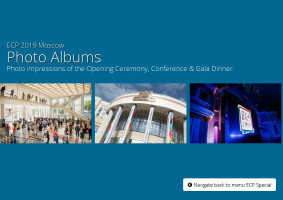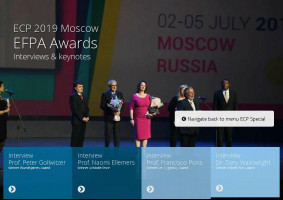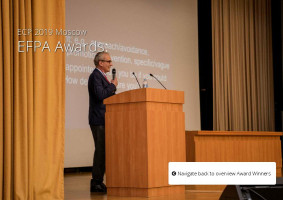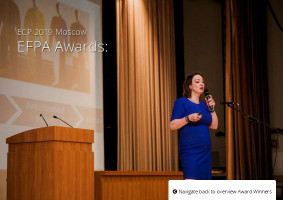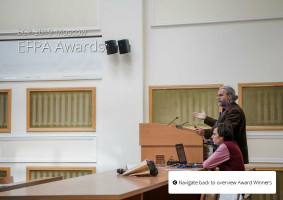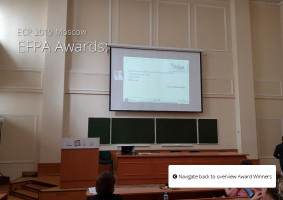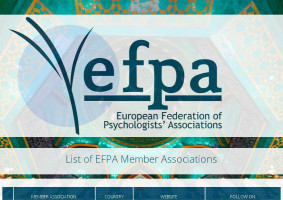Navigate back to overview Award Winners
Winner Aristotle Prize 2019
Interviewed by Vita Bogdanić (European Federation of Psychology Students' Associations - EFPSA)
Could you please tell us a bit about your background. How did you get into the field?
NE: Hm... I have to think a bit. I guess it was when I was a student and one of my supervisors introduced me to it. It was very inspiring and I started reading more about it. I could see also the parallel between very theoretical and very research driven analysis and social implications, so I became even more interested.
More about the lecture of
Naomi Ellemers in pop-up
In your speech you have been talking about higher unemployment rates of migrants regardless of education level. Could you please tell us what would be a way to solve this?
NE: One of the things that we are trying right now is to work with recruiters from companies. We try to work with them to develop ways of recruiting that are different from the ones they are currently using. What they usually do now is that they begin asking who this person is and where the person comes from, and then they look at education and skills. We try to reverse this, so that they begin with questions about skills that the person needs. We are also trying to find electronic support system for this, where you would first have a checklist with necessary skills and after the questions about the person. The idea is that you first look at the skills and then form the impression about an individual.
We also work with the ministry of education with schools in a programme where we discovered that migrant children have more difficulties getting an internship, but once they have an internship they have a same chance of getting a job. This shows that once you already know a person then it’s easier not to be distracted by their nationality because you already know their skills.
The checklist that you mentioned would be anonymous, right?
NE: Yes, we try to develop a test for job applications because in my country for example a lot of applications are very personal. Also, some people know better or have parents who know better how to write these personal letters, and of course if you have migrants who do not know how to read or to write they don’t know how to prepare this letter. Perhaps they have the same qualifications, but you just do not understand how the application process works. That is why we say that we should not look at these letters but rather prepare an online form that people need to complete. If you do it as an online form you can focus on skills and also make candidates aware of information that they need to give. What we want to do then is another selection according to criteria, where you have only few people who meet the criteria and only then you ask for demographics.
Lastly, what advice would you give to students of psychology, especially those that want to get involved in research?
NE: My advice would be nowadays not to get too distracted by all the focus on methodology and statistics. I think they are very important, but they are tools. It is not your goal to have the best methodology; it is your goal to ask the best questions. Students always ask me what is the right methodology to do this and I always tell them there is no absolute right or wrong. I would say the most important is to first have the right question and then look for the best methodology for your research, instead of starting with methodology and then finding the research question. What you get then is that you at least work with the questions that you find important and interesting, and even if your statistics are not perfect at least you’ve done something that is important for you. Even if you do everything that is right you still have no guarantee that you will be successful and that your research will be published. Follow your own interest, and do not be distracted too much by everybody saying you should be doing this and that.
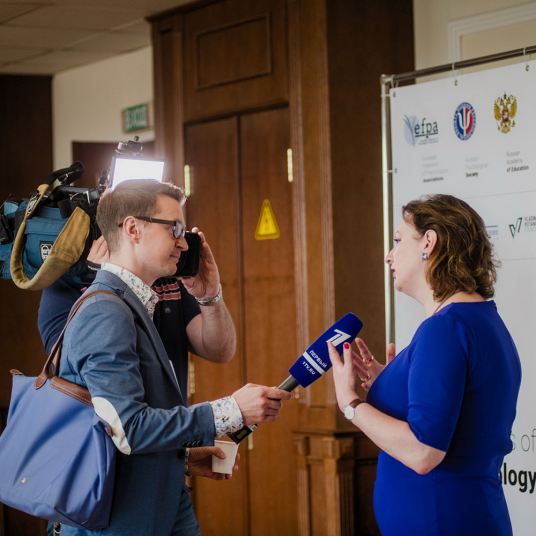
_w536_h536_1.png)
_w536_h536_1.jpg)
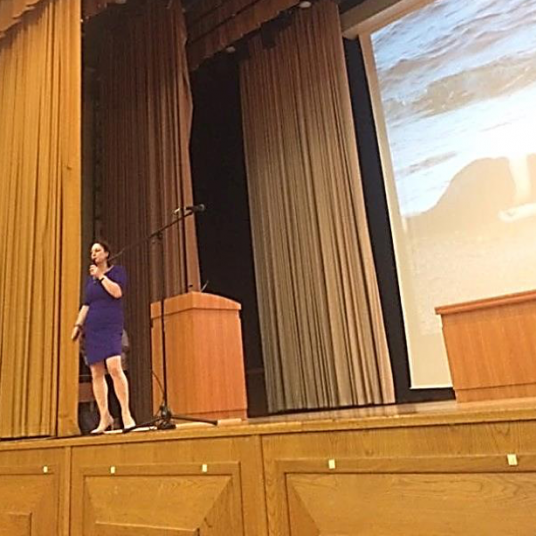
_w536_h536_1.jpg)
